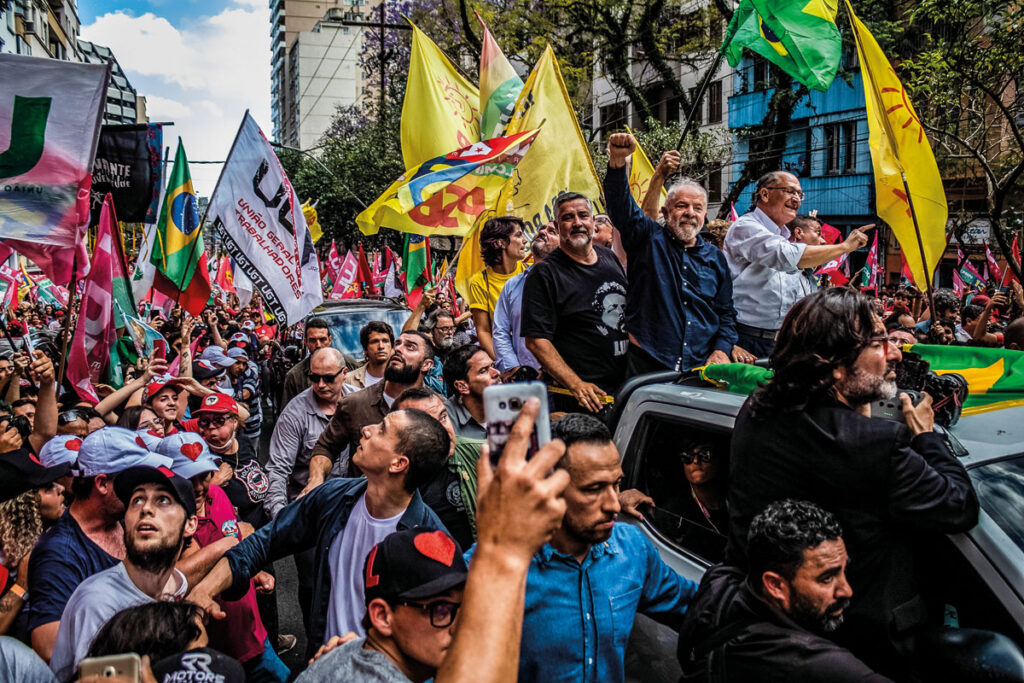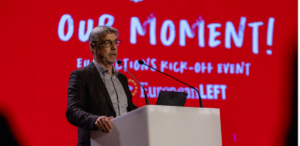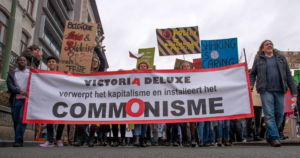Brazilian President Lula’s first 100 days in office have been a successful balancing act.
Lula da Silva’s third term in office got off to a bumpy start. Following his narrow victory in late October 2022, it took all of the former union leader’s negotiating talent to set the new government on a stable foundation. That meant painful compromises, along with concessions on appointments with respect to parties far to the right of Lula’s Workers Party (PT).
On policy, Lula has kept to the course he promised during his election campaign: more money for social services and health, prioritising environmental and climate protection, plus government measures against exclusion and discrimination. It is a daily balancing act, which also has a further goal that needs to be achieved quickly: establishing a stable economy with more jobs and increased tax revenues. If he fails at this, Lula faces the threat of a resurgent mobilization among supporters of his far-right predecessor, Jair Bolsonaro, and a return to polarisation and confrontation.
Under these circumstances, the balance sheet after 100 days of Lula’s administration looks positive. It is the 77-year-old’s third term in office, after first bringing a left-wing party to government in 2002. With social-democratic policies, a demand-side orientation in economics, and the internationally recognized “Fome Zero” programme to eradicate hunger, Lula transformed Brazil into a dynamic regional power that played a key role in the first wave of progressive Latin American governments at the beginning of the twenty-first century.
Nevertheless, this cautious reconstruction of society proved unsustainable, and in 2016, following a media smear campaign and specious accusations, conservatives succeeded in ousting Lula’s successor Dilma Rousseff from office. Ex-military officer and long-time parliamentary back-bencher Jair Bolsonaro exploited the political disorientation of that period during his successful 2018 presidential campaign. Bolsonaro was effective at using fake news and hate speech to divide society, and set about actively undermining democracy and the rule of law.
Many of the ads placed by Lula’s government conclude with the slogan: “Brazil, a country under reconstruction.” It may sound facetious, but it is meant with deadly seriousness. Bolsonaro began a process of dismantling the functional social fabric, obstructing grassroots democratic initiatives and making a sometimes violent antagonism — and thus also a lack of communication — between people into a feature of everyday life in Brazil. Lula, who spent 580 days in prison for alleged corruption as a result of the smear campaign against the PT, knows only too well how much finesse it will take to be able to transform Brazil back into a unified and functioning country, while also ending political polarization.
Weeks before his 1 January 2023 inauguration, Lula had already begun exploratory talks geared towards forming a government. His coalition of centre-left parties is opposed by a clear conservative majority in both the Chamber of Deputies and the Senate. By making concessions on financial policy and offering up multiple ministerial posts, the PT was able to get at least partial cooperation from several centre-right parties.
At the start of the year, the government began to use the room for political manoeuvre it had negotiated to begin work on budget policy and appointments to key committees. These successful dealings were admittedly helped by the fact that the opposing side failed to organize alternatives: on the one hand, the traditional, business-friendly Right had largely dropped out of contention through its bitter electoral losses in 2018 and 2022, and has, at least thus far, opted for an alliance with Lula in defence of democracy. On the other, neither Bolsonaro’s far-right allies nor his Liberal Party (PL) managed to distinguish themselves as a political force in their new role.
Bolsonaro and his base mainly have themselves to blame for the fact that they have failed so far to convert the 49 percent of the vote that he received in the second round into political capital. At the end of December, the then still-president decamped to Florida to avoid having to hand Lula the presidential sash — and possibly out of fear of legal consequences of his time in office, whether due to his family’s fly-by-night financial deals or his negligent approach to the COVID-19 pandemic and the resulting death toll, which by then had risen to 700,000. Bolsonaro only returned in late March, announcing, just to be on the safe side, that he would not take up the role of opposition leader.
The supportive reception that has been lavished on Lula at his international appearances has failed to materialise at home.
But radical Bolsonaristas had already attempted a comeback on 8 January, storming the government precinct and vandalising buildings and facilities under the watchful eye of sympathetic police and military forces. The images of the vandalism put Lula and his government on the offensive, since — a few radical evangelical pastors aside — nobody in the political world dared to defend that sad spectacle.
Lula seized the opportunity to make a number of new military appointments, replaced all the top police brass, and made it abundantly clear that there would be no compromises with that end of the political spectrum. So far, the majority consensus in Brasilia, the capital — that democracy has to be defended and that Lula’s government is at present the only option for doing so — has held.
Glitches in communication and inconsistencies within the cabinet, which has been massively expanded again under Lula, are of course unavoidable. These problems are counterbalanced by moments in which the new leader thoroughly succeeds in distinguishing himself from the aggressive discourse of his predecessor.
When news broke in January of a humanitarian catastrophe in the Amazon basin leading to numerous starvation deaths among the Yanomami people, Lula immediately travelled to the area and initiated steps against violations of their protected areas, which had become a daily occurrence under Bolsonaro. Following heavy rains in the state of São Paulo, he made an appearance with Tarcísio de Freitas, the state governor and a former minister under Bolsonaro, with the aim of alleviating the hardships faced by inhabitants.
“We need to pay attention to people’s well-being rather than our differences”, Lula said, standing side-by-side with Tarcísio — a clear rejection of the understanding of politics cultivated by people on the far right, who immediately blasted the São Paulo governor on social media, denouncing him as a traitor.
After three months in office, Lula has succeeded in putting together a broadly based, functioning government and is working to lead Brazil in a different direction on countless issues.
Despite some rumblings about so many compromises, his supporters on the Left have so far kept quiet. Maintaining a balance with right-wing partners in Congress is more difficult. The alliance might splinter over votes on crucial political differences, or if certain factions raise the price of their cooperation beyond what the PT is prepared pay.
From this point of view, the trickiest area is economic policy. Here, the readiness of traditional right-wingers to support Lula for the sake of democracy is very limited. This has become apparent in the weeks-long tug-of-war over interest-rate policy. Lula has been an outspoken critic, arguing that Brazil has by far the highest interest rates in the world, in real terms, while the Right has defended the independence of the central bank. Its head was appointed by Bolsonaro, and he is sticking to the neoliberal dogma that inflation must be combated with high interest rates. He is uninterested in the fact that, given the high level of public debt, high interest rates are a burden on the budget costing billions of reals and preventing further spending on social services.
In contrast to his first term in office, Lula’s present administration lacks the financial resources needed for the ambitious social, health, and education policies that his voters expect and that would also be able to win back some of those who have become Bolsonaristas. Equally absent is the political power that it would take to fill the coffers again — whether by means of tax reforms at the expense of people with higher incomes or financial policies that would promote investment rather than high returns on savings accounts.
The supportive reception that has been lavished on Lula at his international appearances, including on account of his climate policy, has failed to materialise at home. Thus, his balancing act will continue. Hopefully, everybody is aware that there is no net underneath the rope.
Originally published on the website of the Rosa-Luxemburg-Foundation.



